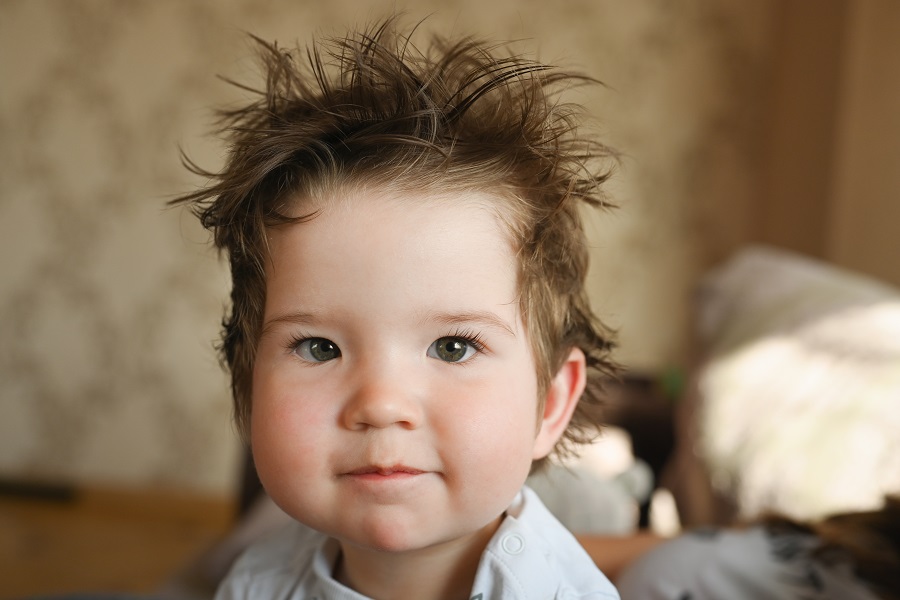Some babies are born with a full head of hair, others are bald for months. And when is it time for a trip to the salon ?
While your baby’s hair is probably something she has only ever considered fleetingly—something to tug or tangle—it may be important to you. After all, hair, hairstyles, and hairy issues often preoccupy us as adults, and it seems our children’s hair—or lack of it—is a big issue for us, too. Are they born bald or hairy? Will the hair fall out? Will it change color? And when it does grow, who will cut it?
First, whether your child is born with a smooth pate or a luxuriant mane comes down to genetics. And whatever amount of hair she does or doesn’t have when she emerges into the world, it is likely to change fairly quickly anyway.
Babies who are born with hair often lose it during the first six months of life. This is because hair growth has different phases. Hair that begins its growth phase in utero will eventually enter a resting (nongrowth) phase and begin to fall out—although not always completely. Hair loss is also partly caused by a hormonal shift within the baby—during pregnancy, your hormones pass across the placenta to your baby, and although these hormones remain temporarily present in her body at birth, their levels naturally start to decline shortly afterward, resulting in hair loss.
The speed at which regrowth occurs varies, and when the hair does grow back it may be a different color or texture. Some babies can remain bald until after they are a year old—although they often have fine, silky down covering their scalp. Once a baby’s hair starts to grow properly, though, parents then have to decide how to manage it.
Generally speaking this is purely a parental concern, yet in some countries early hair management follows the dictates of age-old customs.

In some cultures, parents shave a newborn’s head, in others they wait until a child can speak before cutting his hair for the first time.
All around the world, people have different hair etiquette. A Chinese baby, for instance, receives a first haircut at a month old—the head is shaved leaving just a tuft at the crown, and parents then keep the cut hair.
Hindus believe any hair from birth is impure and associated with maternal dependence, so the child is shaved in a ceremony known as Chudakarana, which signifies cleansing.
Traditional Jewish families do not cut a boy’s hair until his third birthday, when he is considered ready to embark on education—this milestone is marked with a formal haircutting ceremony.
In an ancient Japanese tradition, the lock from a baby’s first haircut is preserved and turned into a calligraphy brush—this is believed to secure good fortune for the child.
Some parents in the US and the UK also save a lock of baby hair as a memento. Usually, though, the timing of this trim has more to do with practicalities than ritual—the length of the child’s hair (can she see where she is going?), her ability to support her own head, and her tolerance for sitting (relatively) still.
So, when the time comes, do you do it yourself or head to the professionals? The advantage of DIY is that it’s free and your baby will be more at ease. The downside is that you are susceptible to the effects of your own shaking hand! If nerves prove problematic, you could try cutting your toddler’s hair while she’s asleep.
Either way, use sharp scissors—you may think blunt ones will be safer, but they’ll pull at the hair and result in an uneven cut. If you choose to go to a hairdresser’s, remember it will be full of sights, noises, and textures that are unfamiliar and possibly frightening to a toddler.
Try to ease the experience by taking her to watch you get a haircut, or if this is not practical play “hairdressers” with her at home. Some child-friendly salons even do a “first haircut” package, which includes a photo and certificate as part of the deal.




















